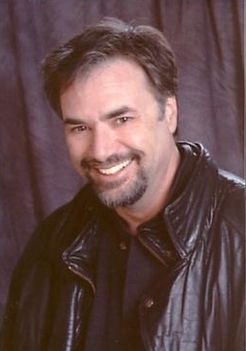Plus a mountain of proof (it's not evidence until and unless it's admitted) is hard to go through. One party may feel, I don't know, the color of the Kharn costume doesn't matter, and then the jury sees a contradiction, and that's what they end up fixating on.
Also, not only does this stuff go to the judge before trial, it hits both sides. Often, repeatedly. Surprise witnesses don't really happen. But surprise testimony? Sure. People lie, they forget, the change their story.
Indeed. I will add that I 'think' (and DO correct me where I'm wrong and/or incomplete here) evidence can sometimes be argued to a judge by talented attorneys to be prejudicial to their client. The opposing attorney rebuts, etc etc. So sometimes a talented attorney can have evidence clearly pointing to the 'crime', even 'innocence' too, struck by a court as inadmissible.
So there's that.
Plus an attorney (either side) can be adept at spinning a piece of evidence to less/more important than it really is. This is often the art within the expertise of talented and determined attorneys. So things can be spun to get the jury/judge/deposition to see the contradiction, fixate on it, making rulings and verdicts.
So there's that too.
Sought after firms are populated with attorneys adept at painting the picture - spinning - to support their clients, no matter the facts of it.
This is tricky stuff, this getting the reality, the facts as they are exactly, to be allowed and/or presented and perceived exactly as they are.
And each attorney, with the knowledge of the opposing litigant's information that will be allowed by the court will, in most cases, have a decent idea of the opposing team's strategy too.
So each team/attorney can intentionally and thoroughly prep their clients in how to respond to the opponent's attorney's every questioning, tack, and sometimes badgering each opposing attorney will use to trip up a testimony to get the court to actually 'see' the truth... and more often to see the truth as each attorney wishes the court or deposing questioning to see it.
In this litigation, even though the defendant is often on record elsewhere as defensive, aggressive, self entitled, etc., he also has a demonstrated ability to be - I'm going to term it charismatic in lieu of better terminology for the moment. He also has shown the ability to come across as sympathetic and sincere. He has a demonstrated ability to sell himself and what he wants.
I suggest he will be well prepped to remain so in deposition and/or court if it comes to that, in attempt, even likelihood of making sure his unsympathetic side will be minimized at worst. And at best... not seen by the court/deposition at all.
I 'think' that while facts in this case can be indisputable, they can - and will - be spun and questioned and rebutted and re-framed by the determined and talented Ms. Ranahan and the resources backing her in W&S to get what she wants; which is all the better accomplished by getting her client some to most of what he wants too.
Therefore, where I may be confident in my own determinings of how every aspect of this litigation rightfully Should turn out, I am also aware the possibility of not everything turning out as I have determined it rightfully should.
I have strong faith in the talented and determined Ms. Ranahan, and I do Not want her to succeed in this litigation. I 'believe' Loeb&Loeb may also be as talented and I hope as determined as she and W&S.
Which gives me hope as I wait.


